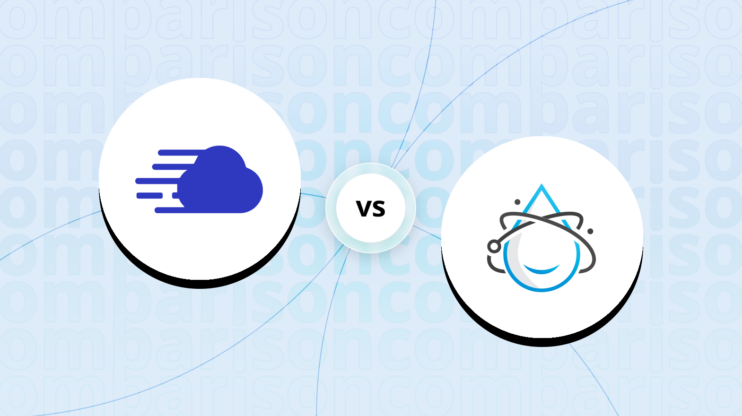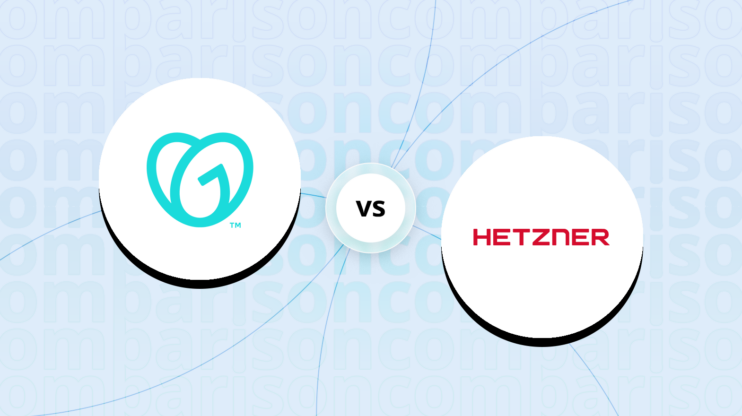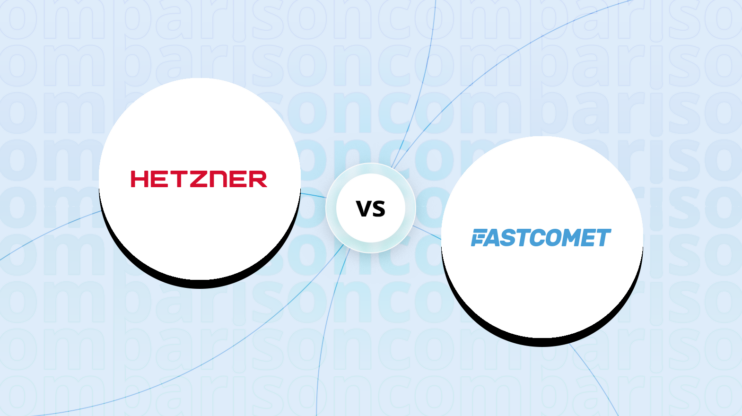Siteground vs Pagely: Final verdict
Looking over SiteGround vs. Pagely, SiteGround is generally the better choice for a wider range of users, while Pagely’s high-end services cater to enterprise needs.
Pagely (Overall grade: 8.1)
Pagely is geared toward enterprise-level clients who prioritize performance, security, and reliability above all else. Powered by Amazon AWS, Pagely offers high-availability configurations, disaster recovery, and an impressive response time of 211ms. It can handle nearly 2,000 requests per second, making it ideal for large projects and high-traffic websites. However, this superior performance comes at a premium price, starting at $199 per month. Pagely also excels in operational security, with advanced features like DDoS protection, two-factor authentication, and SOC 2 Type I & II certification. But the high cost and lack of email hosting make it less accessible for smaller businesses or individual users.
SiteGround (Overall grade: 8.8)
SiteGround stands out for its user-friendly features and affordability. It incorporates Google Cloud infrastructure, which optimizes site speed and redundancy, along with unique speed technologies such as HTTP/2 and TLS 1.3. SiteGround also provides an extensive set of tools like a free site builder, CDN, daily backups, and SSL certificates at no additional cost. Its simplified setup, intuitive admin panel, and 24/7 multi-channel customer support make it highly accessible, even for non-technical users. While the higher renewal prices and occasional email spam issues can be drawbacks, SiteGround’s overall value, extensive feature set, and reliability make it a versatile choice for businesses of all sizes.
 Overall grade:8.8 |
 Overall grade:8.1 |
|
|---|---|---|
| Uptime and Availability | 9.4 | 9.5 |
| Hosting Performance | 8.8 | 8.8 |
| Hosting Security | 8.6 | 9.2 |
| Price | 8.4 | 7.4 |
| Hosting Features | 8.5 | 4.6 |
| Ease Of Setup | 8.9 | 8.2 |
| User Management | 8.4 | 8.4 |
| Customer Support | 9.2 | 8.9 |
| User feedback | 4.3/5 | 4.9/5 |
Hosting types offered
Both platforms provide a variety of hosting types, each designed to meet the different needs of users.
 |
 |
|
|---|---|---|
| Shared hosting | ||
| Cloud hosting | ||
| WordPress hosting | ||
| Ecommerce hosting | ||
| VPS hosting | ||
| Dedicated hosting |
Although both offer a variety of hosting plans tailored to different needs, in
certain cases, one platform may prove to be more suitable.
Detailed comparison
Uptime and availability
Evaluates the average uptime statistics, uptime guarantee and overall availability of the hosting
provider
Score Components:
- Uptime percentage (30%): evaluates the uptime statistics in given period of time
- Uptime guarantee (20%): Assesses if the platform offers an uptime guarantee and
whether the actual uptime matches the promised guarantee. - General performance (25%): Evaluates how fast is the average response time and overall
it’s stability. - Responsiveness (10%): Adaptability to different devices and screen sizes.
- Availability (25%): Reflects the total downtime and number of outages.
 9.4
9.4
 9.5
9.5
🏆 Winner Pagely: Offering unparalleled uptime and availability for high-demand needs.

SiteGround maintains a strong presence with its 99.9% uptime guarantee and top-tier customer support. Their performance testing shows only 7 minutes of downtime over almost two months, translating to an impressive 99.99% actual uptime. The average response time of 0.207 seconds and quick support responses further solidify its reliability for most users. With widespread server locations and a solid refund policy, SiteGround is a dependable option.

Pagely sets the bar higher with a guaranteed 99.99% uptime, leveraging separate availability zones and multi-region redundancy. This design includes disaster recovery features and automatic load balancing for consistent performance. With a response time of 211ms and handling nearly 2,000 requests per second, Pagely is a prime choice for large-scale projects. Their high availability plans, though premium-priced, deliver tailored solutions for mission-critical operations.
Which one has better hosting performance?
Score Components:
- Hosting speed (30%): This includes SSD quality, Load times, PageSpeed score ranges,
additional information on website speed, built-in plugins for performance enhancement, available caching
methods, and CPU/RAM options - CDN (20%): Considers whether CDN is available or not, whether it’s free or paid, and
the quality of the CDN service - Available data centers (30%): Evaluates the number of data centers and their locations
globally. - Scalibility (20%): Looks at whether elastic scaling is available, the process required
to scale (manual upgrade vs. automatic scaling), the presence of dedicated servers, and the costs
associated with scaling.
 8.8
8.8
 8.8
8.8
🏆 Winner SiteGround: Reliable, cost-effective performance.
SiteGround and Pagely both offer solid hosting solutions, but their performance and pricing differ significantly. SiteGround uses premium Google Cloud infrastructure with SSD persistent storage, optimizing site speed and redundancy. Unique speed technologies such as HTTP/2, Brotli, and TLS 1.3 are integrated, along with built-in caching methods like NGINX Direct Delivery and SuperCacher.
Additionally, SiteGround offers a free CDN with over 170 edge locations worldwide. Data centers are located in top global locations, enhancing performance and redundancy. Pagely, on the other hand, provides high-end WordPress hosting powered by Amazon AWS with superior caching and SSL management. Pagely uses flexible configuration and managed DevOps support, and while slightly more powerful, it comes at a higher cost.
Website Speed
SiteGround ensures ultrafast website speed through custom PHP and MySQL implementations, significantly reducing TTFB and speeding up page loads by an average of 30%. Static and dynamic caching boost site efficiency by up to 5x, and their Speed Optimizer plugin streamlines media and front-end optimizations. Meanwhile, Pagely leverages Amazon AWS infrastructure along with advanced caching and CDN technology to achieve optimal speed and performance. Both services focus heavily on speed, but SiteGround’s integration of modern technologies and unique implementations provide a notable edge in terms of speed enhancement and management.
Scalability
SiteGround’s hosting plans require you to upgrade to higher-tier options for expanded resources, with the most advanced plan being the Cloud hosting starting at $100 per month. They offer flexible scaling through dedicated resources upon upgrading plans but automatic scalability wasn’t mentioned. Pagely offers flexible and managed scaling with no limit on PHP workers and dedicated database resources for high-performance needs. Scaling options are more diverse but come at a premium, starting from $1249 per month for high availability configurations. Both support elasticity, though Pagely’s approach is more extensive but costlier.
Which one has better security features?
and regulatory requirements
Score Components:
- Technical security measures (40%): This includes encryption, firewalls, DDoS
protection, secure configurations, server monitoring, access control and availability of security addons
(e.g Sitelock security). - Operational security measures (30%): Encompasses data privacy, backups and data
redundancy. - Compliance and certifications (20%): Adherence to legal and regulatory requirements
(e.g., GDPR, HIPAA) and possession of certifications (e.g., ISO 27001, SOC 2). - Business and reliability (10%): Factors in the provider’s reputation, uptime
guarantees, and customer support.
 8.6
8.6
 9.2
9.2
🏆 Winner
Pagely: Provides robust security, compliance, and operational measures for optimal hosting protection.
Both SiteGround and Pagely have notable differences in their approaches to technical and operational security, as well as in their compliance with regulations.
Technical security measures:
SiteGround offers 24/7 system administration, smart web application firewall (WAF), distributed backups, an AI anti-bot system, and free SSL certificates. Pagely counters with DDoS protection using AWS Shield, a proprietary WAF, malware scanning, and customizable two-factor authentication (2FA). Both provide robust website backups, but Pagely distinguishes itself with built-in emergency backup solutions and advanced resource isolation for clients. SiteGround’s daily automated backups are strong but lack the immediate reclamation features of Pagely.
Operational security measures:
SiteGround features include automatic updates for WordPress and WooCommerce and multi-layered security managed by Google Cloud. Pagely boasts round-the-clock uptime monitoring, comprehensive incident response, brute force protection, and anti-spam filtering. While SiteGround emphasizes custom security solutions and distributed backups, Pagely’s 24/7 monitoring and detailed incident response plans offer superior operational security.
Compliance and certifications:
SiteGround lacks specific regulatory compliance features, focusing more on general security. Pagely, however, provides SOC 2 Type I & II certification, GDPR compliance, and an Attestation of Compliance for PCI-DSS. SiteGround does not offer PCI compliant servers, setting it apart unfavorably in compliance capabilities.
 |
 |
|
|---|---|---|
SSL certificate |
Free SSL Certificates |
Support for Let’s Encrypt and Custom SSL Certificates |
Additional security features |
AI Anti-Bot System, Smart WAF |
DDoS Protection, Malware Scanning |
PHP versions |
Not specified |
PHP Long Term Support Solutions |
GDPR compliance |
Not specified |
Yes |
HIPAA compliance |
Not specified |
Not specified |
PCI compliance |
No |
Yes |
Hosting features
Score Components:
- Domains (20%): Assesses the availability of a free domain, domain purchase options, and
pricing - Email (15%): Considers if the provider offers full email hosting, or is reselling
third-party service, and if the email is only transactional or not - Website builder (15%): Checks if website builder is available, and it’s user
friendliness and overall the level of customization allowed. - Staging environment (20%): Determines if a staging environment is available, allowing
for testing changes before going live. - FTP & SFTP accounts (10%): Evaluates if and how easily users can access FTP and
SFTP accounts - Git and SSH access (20%): Assess whether Git is integrated into the hosting service and
if SSH access is provided
 8.5
8.5
 4.6
4.6
🏆 Winner SiteGround: Reliable and feature-rich hosting solutions.
SiteGround and Pagely both offer feature-rich hosting services. SiteGround stands out with its user-friendly offerings like a free site builder, making it easy for beginners to create and customize websites without requiring extensive technical know-how. SiteGround also provides free services like CDN, daily backups, and SSL certificates that can significantly reduce additional costs. On the other hand, Pagely leverages AWS Cloud infrastructure, promising superior performance and reliability, but at a significantly higher price point. Pagely’s automated backups and advanced network security cater mainly to enterprise-level clients who require robust, customizable solutions and are less sensitive to cost.
When it comes to customization and advanced technical management, both providers hold their ground with support for SSH, GIT, and WP-CLI. SiteGround offers reseller plans and cloud hosting with custom resources, adding flexibility for growing businesses. Pagely also emphasizes performance and security, with daily backups and disaster recovery ensured through AWS. Nevertheless, Pagely doesn’t provide a free site builder and focuses more on scalable and high-availability solutions, making it less accessible for smaller businesses or individual users. For those looking to balance cost, usability, and comprehensive features, SiteGround emerges as the more versatile choice.
 |
 |
|
|---|---|---|
Free domain |
No |
No |
Free SSL |
Yes |
Yes |
Email hosting |
Yes |
No |
Website builder |
Yes |
No |
Staging environment |
Yes |
Yes |
FTP & SFTP account |
Yes |
Yes |
Git and SSH access |
Yes |
Yes |
Free backup |
Yes |
Yes |
Money back guarantee |
30 Days |
No |
Both providers support a range of users from beginners to experts with user-friendly website builders and WordPress staging areas. However, in terms of developer tools, both SiteGround and Pagely offer robust options including SSH access, support for multiple programming languages, and Git for version control, thus appealing to developers looking for advanced capabilities.
Email services:
SiteGround offers full email hosting services, including free email accounts, which can be useful for businesses needing custom email domains. Pagely, however, does not provide email hosting as part of its offerings but focuses on robust infrastructure and support for transactional emails. Users needing comprehensive email solutions would benefit more from SiteGround, especially since Pagely’s services do not extend to email hosting or campaign management.
Price
Score Components:
- Plan value (40%): What each pricing tier offers.
- Transparency and clarity (30%): Clearness of pricing structures.
- Flexibility of plans (20%): Range of options to suit different budgets.
- Hidden costs (10%): Additional expenses not included in the plan.
 8.4
8.4
 7.4
7.4
🏆 Winner SiteGround: Offers competitive pricing and extensive features across various hosting plans.
Evaluating the pricing of plans among various hosting providers can be complex due to their differing pricing and renewal strategies. Additionally, certain plans require annual commitments, which adds to the difficulty of making comparisons. The prices listed are based on monthly commitments; plans requiring annual commitments are indicated. Additionally, although some providers offer identical plans for WordPress and shared hosting, we have created separate tables for each to enhance clarity.
Comparing SiteGround and Pagely reveals stark contrasts in pricing and features. SiteGround offers affordable plans with robust features, such as free SSL, daily backups, and enhanced security, making it the economical choice for users with diverse needs. Pagely’s plans, starting at $199/mo, cater more to high-end and enterprise users, boasting dedicated resources and managed DevOps support. While Pagely provides more customization and performance-specific features, SiteGround delivers excellent value for the price, especially for smaller to mid-sized sites.
 |
 |
|---|---|
|
StartUp$17.99/mo
1 Website, 10 GB Web Space, ~10,000 Visits Monthly, Unmetered Traffic, Free WP Installation, Free WP Migrator, Free Email Migrator, WordPress Autoupdates, Free SSL, Daily Backup, Free CDN, Free Email, Enhanced Security, Ecommerce Enabled, WP-CLI and SSH, Managed WordPress, Out-of-the-box Caching, Unlimited Databases, 100% renewable energy match, 30-Days Money-Back, Add Collaborators. Value for Price:8.5/10
|
Developer 1$199/mo
2 vCPU (Burstable), 2 GB RAM, 30 GB SSD Storage, No Cap on PHP Workers, Decoupled Database Resources, Managed DevOps and Support. Value for Price:7.0/10
|
|
GrowBig$29.99/mo
Unlimited Websites, 20 GB Web Space, ~100,000 Visits Monthly, Unmetered Traffic, Free WP Installation, Free WP Migrator, Free Email Migrator, WordPress Autoupdates, Free SSL, Daily Backup, Free CDN, Free Email, Enhanced Security, Ecommerce Enabled, WP-CLI and SSH, Managed WordPress, Out-of-the-box Caching, Unlimited Databases, 100% renewable energy match, 30-Days Money-Back, Add Collaborators, On-demand Backup Copies, 30% faster PHP, Staging. Value for Price:8.6/10
|
Developer 2$299/mo
2 vCPU (Burstable), 4 GB RAM, 30 GB SSD Storage, No Cap on PHP Workers, Decoupled Database Resources, Managed DevOps and Support. Value for Price:7.2/10
|
|
GoGeek$44.99/mo
Unlimited Websites, 40 GB Web Space, ~400,000 Visits Monthly, Unmetered Traffic, Free WP Installation, Free WP Migrator, Free Email Migrator, WordPress Autoupdates, Free SSL, Daily Backup, Free CDN, Free Email, Enhanced Security, Ecommerce Enabled, WP-CLI and SSH, Managed WordPress, Out-of-the-box Caching, Unlimited Databases, 100% renewable energy match, 30-Days Money-Back, Add Collaborators, On-demand Backup Copies, 30% faster PHP, Staging + Git, White-label Clients, Free Private DNS, Highest Tier of Resources, Priority Support. Value for Price:8.7/10
|
N/A |
 |
 |
|---|---|
|
StartUp$17.99/mo
1 Website, 10 GB Web Space, ~10,000 Visits Monthly, Unmetered Traffic, Free SSL, Daily Backup, Free CDN, Free Email, Free Email Migrator, Enhanced Security, Ecommerce Enabled, Managed WordPress, Out-of-the-box Caching, Unlimited Databases, 100% renewable energy match, 30-Days Money-Back, Add Collaborators. Value for Price:8.4/10
|
N/A |
|
GrowBig$29.99/mo
Unlimited Websites, 20 GB Web Space, ~100,000 Visits Monthly, Unmetered Traffic, Free SSL, Daily Backup, Free CDN, Free Email, Free Email Migrator, Enhanced Security, Ecommerce Enabled, Managed WordPress, Out-of-the-box Caching, Unlimited Databases, 100% renewable energy match, 30-Days Money-Back, Add Collaborators, On-demand Backup Copies, 30% faster PHP, Staging. Value for Price:8.5/10
|
N/A |
|
GoGeek$44.99/mo
Unlimited Websites, 40 GB Web Space, ~400,000 Visits Monthly, Unmetered Traffic, Free SSL, Daily Backup, Free CDN, Free Email, Free Email Migrator, Enhanced Security, Ecommerce Enabled, Managed WordPress, Out-of-the-box Caching, Unlimited Databases, 100% renewable energy match, 30-Days Money-Back, Add Collaborators, On-demand Backup Copies, 30% faster PHP, Staging + Git, White-label Clients, Free Private DNS, Highest Tier of Resources, Priority Support. Value for Price:8.7/10
|
N/A |
 |
 |
|---|---|
|
Jump Start$100.00/mo
4 CPU Cores, 8GB Memory, 40GB SSD Space, 5TB Data Transfer. Value for Price:8.2/10
|
Performance Lite$375/mo
2 vCPU, 4 GB RAM, 50 GB SSD Storage, No Cap on PHP Workers, Decoupled Database Resources, Managed DevOps and Support, Flexible Configuration. Value for Price:6.8/10
|
|
Business$200.00/mo
8 CPU Cores, 12GB Memory, 80GB SSD Space, 5TB Data Transfer. Value for Price:8.5/10
|
Performance$499/mo
2 vCPU, 4 GB RAM, 50 GB SSD Storage, No Cap on PHP Workers, Decoupled Database Resources, Managed DevOps and Support, Flexible Configuration. Value for Price:7.0/10
|
|
Business Plus$300.00/mo
12 CPU Cores, 16GB Memory, 120GB SSD Space, 5TB Data Transfer. Value for Price:8.6/10
|
Scale$2500/mo
Custom CPU, Custom RAM, Custom SSD Storage, No Cap on PHP Workers, Dedicated Database Resources, Managed DevOps and Support, Flexible Configuration. Value for Price:7.3/10
|
|
Super Power$400.00/mo
16 CPU Cores, 20GB Memory, 160GB SSD Space, 5TB Data Transfer. Value for Price:8.7/10
|
N/A |
Enterprise plans
SiteGround’s cloud hosting and Pagely’s enterprise class plans cater well to enterprise needs. SiteGround offers robust plans up to $400/month with extensive resources like 16 CPU Cores and 20GB Memory. Pagely’s enterprise plans start from $2500/month, offering high-end features such as multi-region redundancy, enhanced SLAs, and personalized technical account management.
Siteground vs Pagely: Ease of setup
platform.
Score Components:
- Site migration (25%): Assesses whether the provider offers tools for site migration,
either automated or manual, and whether these services are free or require a fee. - Admin panel usability (35%): Evaluates the type of admin panel provided, such as the
standard cPanel or a custom solution, focusing on its accessibility and user-friendliness for both
technical and non-technical users. - Setup features (20%): Examines the availability and ease of use of various setup
features, including FTP accounts, file managers, email account setup, PHPMyAdmin, and easy CDN
configuration. - Help center quality (20%): Measures the quality and accessibility of the provider’s
help center resources, including articles and tutorials.
 8.9
8.9
 8.2
8.2
🏆 Winner: SiteGround: Known for its ease of setup and excellent customer support.
SiteGround provides an automated Site Setup Wizard that simplifies the process of launching a website, catering to both technical and non-technical users. It allows users to choose among various applications like WordPress and Magento, making it straightforward to start. SiteGround also integrates the WordPress Starter Plugin, which adds a professional theme and crucial plugins, enhancing the admin panel’s user-friendliness. The addition of a one-click staging tool, although limited to specific plans, further allows users to test site changes easily before they go live. The combination of these features makes SiteGround’s admin panel both intuitive and powerful.
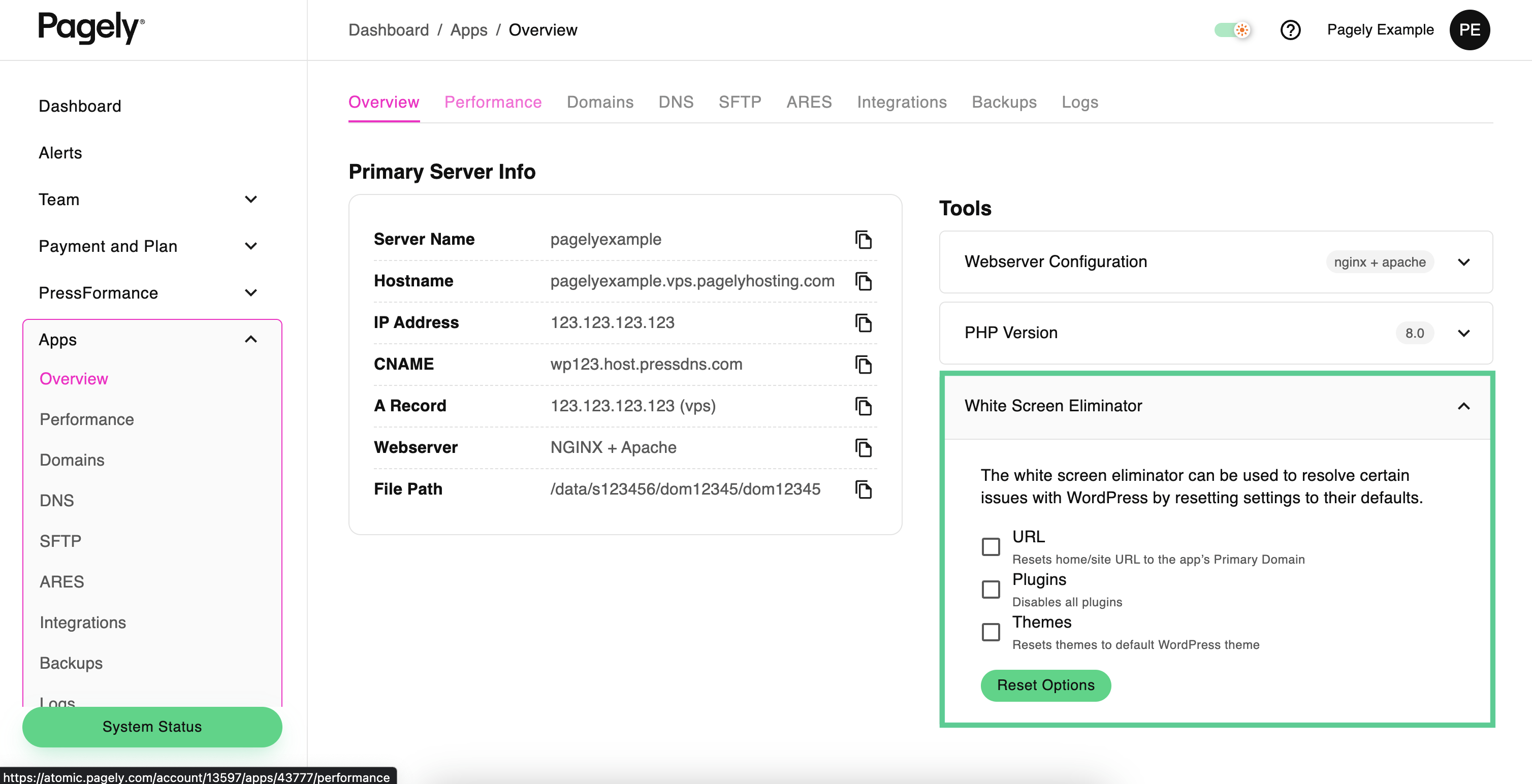
Pagely on the other hand, offers a more traditional setup that takes about a day. Its admin panel is designed with a focus on managed WordPress hosting, providing essential tools like deployment and staging, caching, and command-line tools. Pagely is suitable for users who are familiar with WordPress and prefer hands-on management. It includes an accessible knowledge base that guides users through various configurations and provides support through tickets and chat. While its admin panel is efficient, it may not be as beginner-friendly as SiteGround’s.
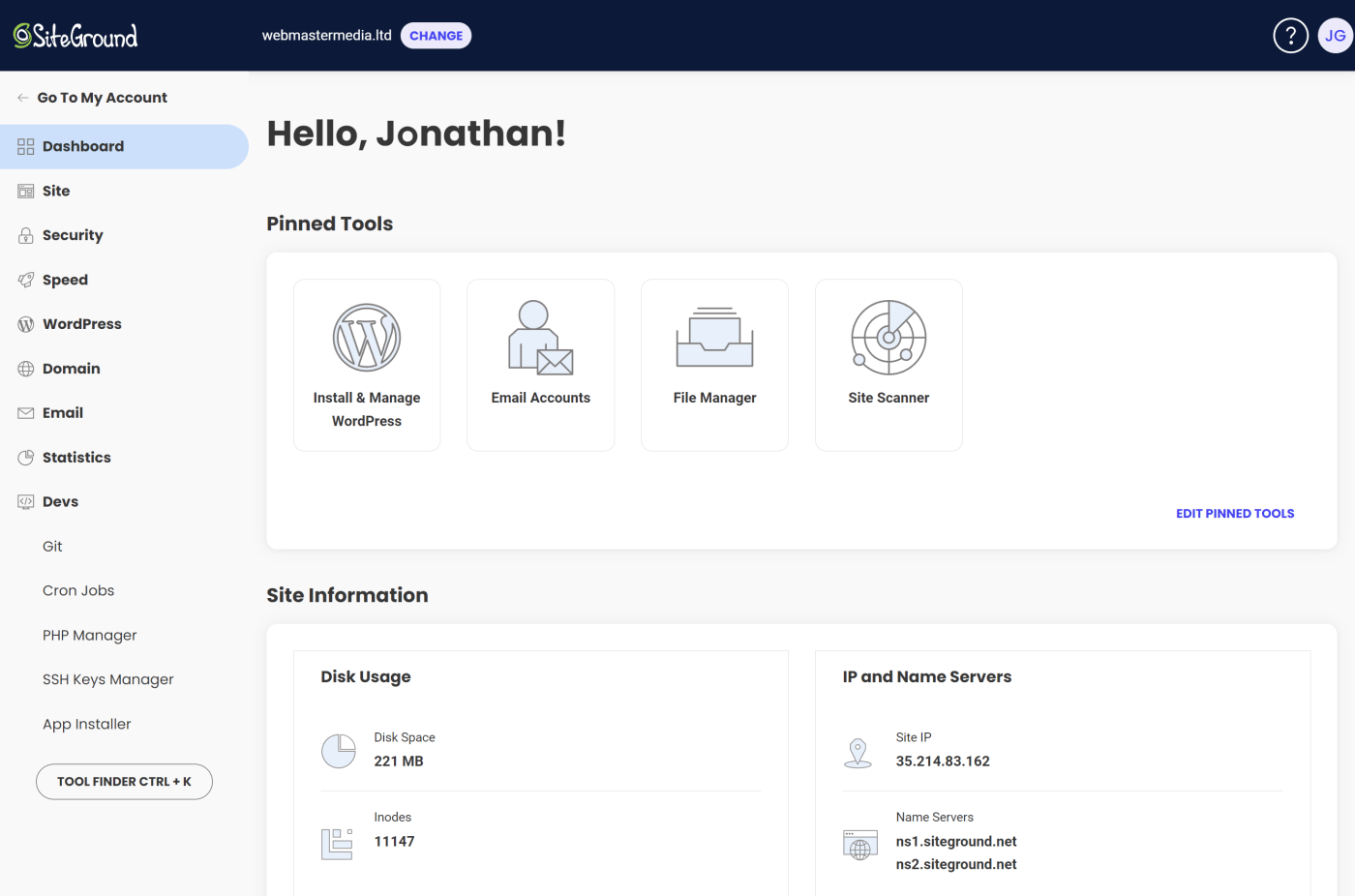
SiteGround simplifies website migration with its free WordPress Migrator Plugin, allowing for easy and quick site transfers. For those who need professional help, SiteGround offers expert migrations at an affordable fee of $30 per site. This makes it accessible to users with varying levels of technical expertise. In contrast, Pagely’s migration is manual and might involve more steps, requiring users to interact with their support channels. The availability of only ticket and chat support can also slow down the process, particularly for complex migrations.
The platforms provide extensive knowledge bases filled with guides, how-to articles, and instructional content. SiteGround offers a wide range of resources alongside 24/7 chat and phone support. Pagely also boasts a detailed help center with an intuitive search function and around-the-clock support via live chat, phone, and ticketing, ensuring comprehensive user support.
User management
accessibility.
Score Components:
- Role customization (40%): Flexibility in creating and defining user roles and
permissions. - Ease of management (30%): User interface and tools for managing users.
- Access control (20%): Effectiveness of access control measures for different user
levels. - Scalability (10%): Ability to manage a growing number of users efficiently.
 8.4
8.4
 8.4
8.4
🏆 Winner SiteGround: SiteGround offers comprehensive user management features and customizable user roles, making it highly suitable for collaborative site management.
When it comes to managing user roles, permissions, and accessibility, both SiteGround and Pagely provide robust frameworks designed to enhance user collaboration and control. SiteGround allows for the addition of team members and collaborators with unique logins, along with the ability to create custom roles and manage permissions from a centralized client area. In contrast, Pagely offers a predefined hierarchical system with specific roles like Account Owner, Super-Admin, and Tech, among others, each with a broad spectrum of access permissions. Both platforms offer extensive user role configurations, but SiteGround’s flexibility in creating custom roles provides an added level of precision and control.
The user interface for managing users on SiteGround is centered around the Client Area, which includes intuitive options for adding users, creating roles, and managing permissions. The interface is straightforward and enables users to handle user management tasks with ease. Pagely also provides a user-friendly interface, albeit with a more structured approach due to its predefined roles. Users can navigate between different user management features, such as 2-factor authentication and SSH key management, efficiently. However, SiteGround’s interface might feel more adaptable due to its customization capabilities.
Access control measures on both platforms are generally effective. SiteGround offers white-label client management, ensuring that branding is consistent and unseen by clients, which is a significant plus for agencies. Pagely, with its detailed role definition, allows for fine-grained access control up to creating distinct hierarchical access levels for users. Both platforms can manage a growing number of users effectively, but SiteGround’s ability to fine-tune role creation could be seen as an advantage for rapidly scaling teams or agencies requiring highly specific permissions.
SiteGround User Roles Table:
| Role | Description | Access highlights |
|---|---|---|
| Collaborator | Team members for site management. | Access Site Tools, build or maintain site, contact support. |
| White-label Client | Clients on GoGeek and Cloud plans. | Access Site Tools from a white-label URL, no SiteGround branding. |
Pagely User Roles Table:
| Role | Description | Access highlights |
|---|---|---|
| Account Owner | Full account management. | Manage everything including 2FA, SSH/SFTP keys, sites, backups, and VPS servers. |
| Super-Admin | High-level administrative tasks. | Similar to Account Owner minus creating other Admin users. |
| Sub-Admin | Administrative tasks without user creation. | Manages sites, 2FA, SSH/SFTP keys, and site-level users. |
| Tech | Technical management. | Handles 2FA, SSH/SFTP keys, and site management. |
| Billing | Billing-specific functions. | Manages 2FA and SSH/SFTP keys; has access to backups. |
| App-Only | Limited to application needs. | Manages 2FA and SSH/SFTP keys; access to backups. |
| App-Only-Minimal | Very restricted application role. | Manages 2FA and SSH/SFTP keys; access to backups. |
Customer support
hosting provider.
Score Components:
- Support communication channels (30%): Measures the variety of customer support types
provided (live chat, chatbot, email, phone, etc.) - Availability (20%): Assesses the availability hours for each channel, including 24/7
support options. - Technical support quality (30%): Assesses whether the provider offers comprehensive
technical support, including hardware upgrades (e.g., HDD to SSD), software installations, and web
server configuration changes. - Enterprise support (20%): Checks if there are dedicated or priority support services
for enterprise-level customers.
 9.2
9.2
 8.9
8.9
🏆 Winner SiteGround: SiteGround stands out for its extensive support options, highly trained staff, and exceptional customer satisfaction.
 |
 |
|
|---|---|---|
| Phone support | ||
| Live chat support | ||
| Chatbot | ||
| Email/ticket support | ||
| Enterprise support (dedicated agent, priority support) |
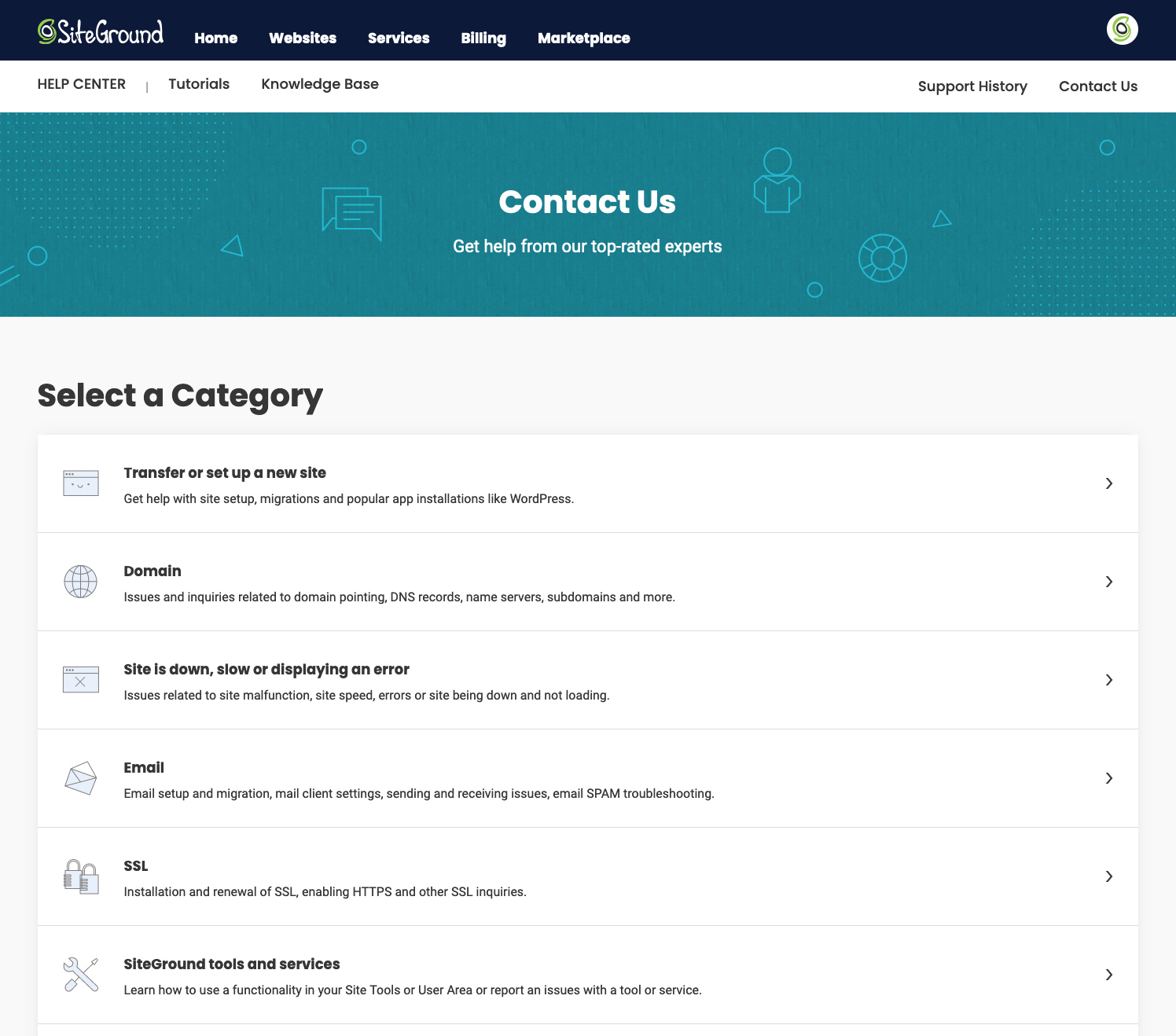
When comparing SiteGround and Pagely, SiteGround’s customer support excels with 24/7 live chat, phone support, helpdesk tickets, and an AI Assistant. Their efficient, trained, and friendly team ensures quick issue resolution, often responding to complex issues within 15 minutes. SiteGround also offers professional expert migrations, making it hassle-free for users to switch their hosting providers, which is particularly valued by their customers.
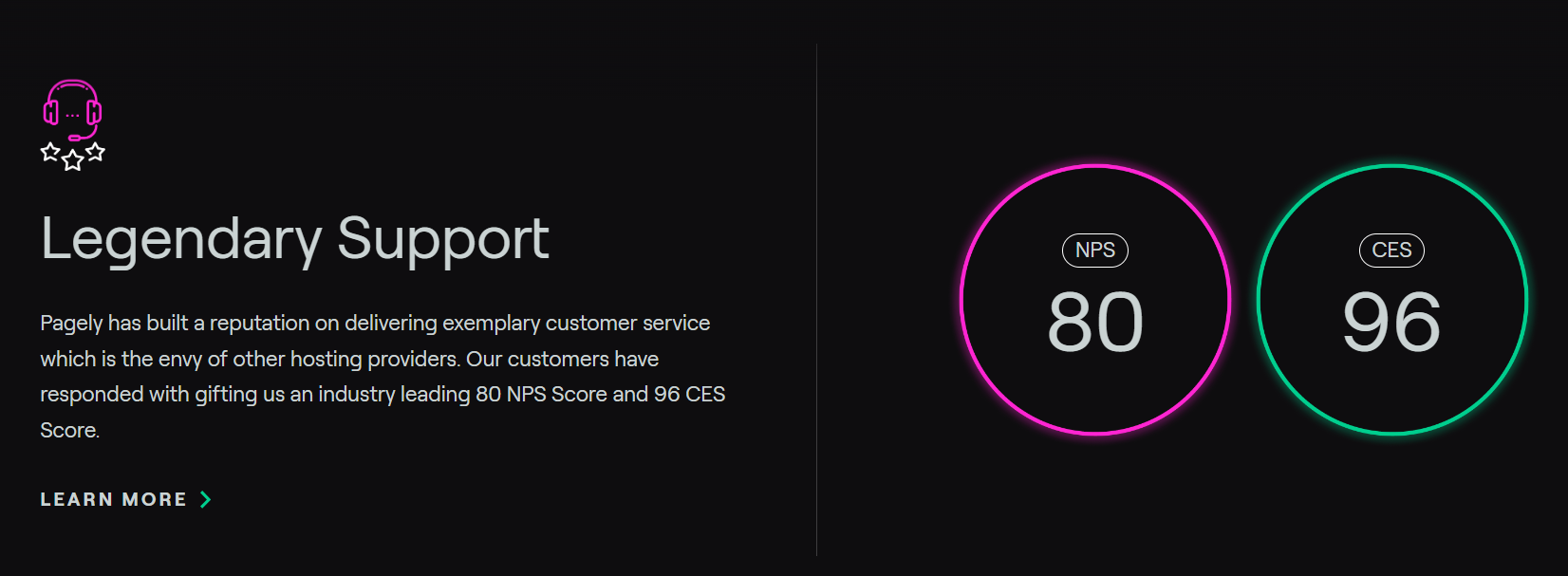
Pagely also offers solid customer support with 24/7 ticket availability and business-hours live chat, complemented by a Slack channel for enterprise clients and special onboarding processes. While Pagely’s tierless support ensures each engineer can resolve issues directly, it’s limited for 24/7 phone support to select plans only. With an impressive customer effort score and numerous positive testimonials, Pagely remains a competitive choice but slightly falls behind in overall support comprehensiveness when stacked up against SiteGround.
Siteground vs Pagely: User feedback
SiteGround receives high praise for its exceptional customer support and user-friendly interface. Users appreciate the quick, knowledgeable, and patient assistance provided through chat and phone, which guides them effectively through technical issues. However, some users find the renewal prices steep and express concerns about their email spam protection system. Despite these drawbacks, the overall sentiment is very positive, with many reviewers recognizing SiteGround as a reliable and superior hosting provider that delivers on its promises.
Users highly appreciate this hosting provider for its exceptional reliability and top-notch customer support, often comparing it to having an on-call DevOps team. The platform is praised for its speed, security, and a suite of features designed specifically for WordPress hosting. Many find the management tools intuitive and effective, though some express a desire for improvements in specific areas like the Atomic dashboard and multi-user access. The main criticism revolves around the high cost, which is noted as a barrier for smaller operations, but many users agree the premium price is justified by the service’s quality and reliability.
Siteground vs Pagely: FAQ
What are the major differences in pricing and value between SiteGround and Pagely?
SiteGround offers affordable plans with robust features like free SSL, daily backups, and enhanced security, making it an economical choice for users with diverse needs. Pagely’s plans start at $199/month and cater more to high-end and enterprise users, providing dedicated resources and managed DevOps support. While Pagely offers more customization and performance-specific features, SiteGround delivers excellent value for the price, especially for smaller to mid-sized sites.
Which hosting service offers better security features?
Pagely offers advanced security measures, including DDoS protection, a proprietary WAF, malware scanning, and customizable two-factor authentication, along with SOC 2 Type I & II certification. SiteGround provides strong security as well, featuring 24/7 system administration, smart WAF, an AI anti-bot system, and free SSL certificates. Overall, Pagely distinguishes itself with more comprehensive and high-level security features suitable for enterprise-level needs.
Which platform offers better customer support?
SiteGround excels in customer support with 24/7 live chat, phone support, helpdesk tickets, and an AI Assistant, ensuring quick and effective issue resolution. Pagely also provides solid support with 24/7 ticket availability and business-hours live chat, as well as a Slack channel for enterprise clients. However, SiteGround’s multi-channel support and rapid problem-solving capabilities make it the more comprehensive choice for customer support.
How do the providers handle email hosting and what features are included?
SiteGround offers full email hosting services, including free email accounts, which is beneficial for businesses needing custom email domains. Pagely does not provide email hosting as part of its offerings but focuses on robust infrastructure and support for transactional emails. Users needing comprehensive email solutions would find SiteGround more suitable due to its inclusive email hosting features.
Which service is more suitable for hosting a high-traffic website?
Pagely is designed for high-traffic websites with its high-availability configurations, disaster recovery features, and the ability to handle nearly 2,000 requests per second. Powered by Amazon AWS, Pagely provides robust infrastructure and superior performance tailored for large projects and high-traffic demands. While SiteGround offers solid performance, Pagely’s specialized capabilities make it the better choice for high-traffic websites.
The making of this blog
We followed a clear, step-by-step process to write and research this article.









